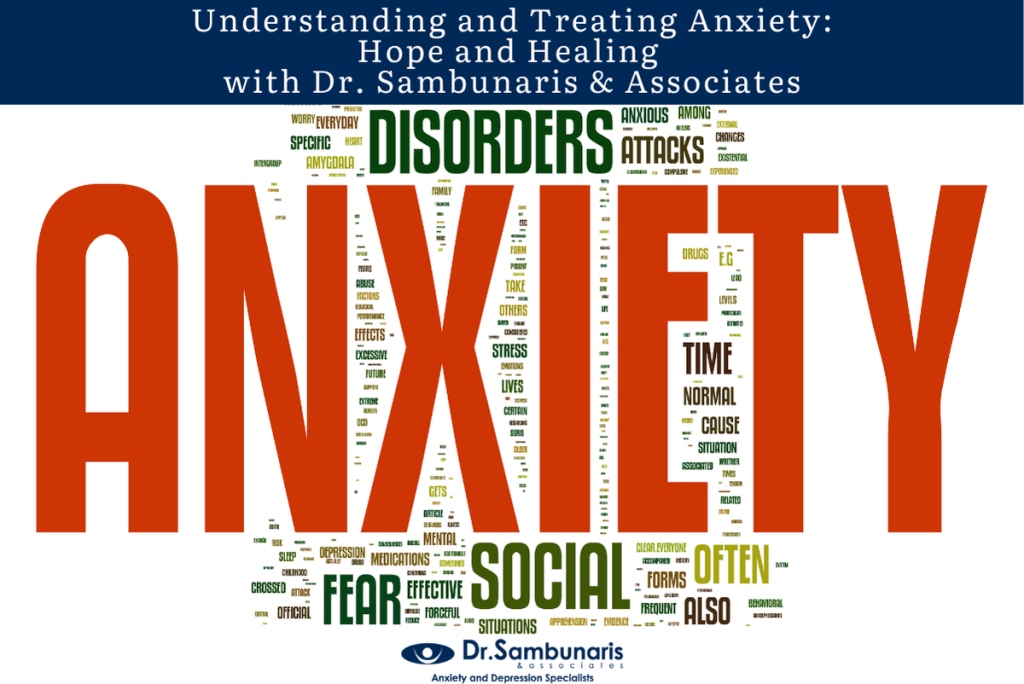Post-traumatic stress disorder (PTSD) casts a long shadow, often leaving individuals feeling isolated, overwhelmed, and disconnected from their own lives. The lingering effects of trauma can manifest as relentless anxiety, terrifying flashbacks, chronic nightmares, and a pervasive sense of dread, making daily functioning a monumental challenge. For many who have navigated traditional treatment pathways without achieving significant relief, the search for effective solutions can feel exhaustive. However, a groundbreaking treatment is now offering a powerful beacon of hope: Ketamine therapy.
At Dr. Sambunaris & Associates in Alpharetta, GA, under the visionary leadership of Dr. Angelo Sambunaris and the compassionate guidance of Dr. Sheila Namanworth, DMD, individuals grappling with the profound impact of PTSD are discovering renewed possibilities for healing, resilience, and a return to a fulfilling life. Located conveniently at 5755 North Point Parkway, Suite 256, Alpharetta, GA 30022, their practice is at the forefront of innovative psychiatric care.
Deciphering PTSD: Beyond the Surface of Traumatic Memories
PTSD is far more than just a collection of “bad memories.” It represents a complex neurological and psychological response to overwhelmingly stressful or terrifying events. These events can range from direct exposure to combat, natural disasters, serious accidents, physical or sexual assault, to witnessing severe violence or even experiencing a profound loss. The brain, in its attempt to cope with such extreme stress, can become dysregulated, leading to a persistent state of hyperarousal and altered information processing.
The hallmark symptoms of PTSD, as recognized by mental health professionals, include:
- Intrusive Symptoms: These are involuntary and distressing recollections of the traumatic event. They can take the form of recurrent, unwanted memories, vivid flashbacks where you feel like you’re re-experiencing the event, or distressing nightmares directly related to the trauma. These intrusions can be triggered by seemingly innocuous cues, making everyday life unpredictable and anxiety-provoking.
- Avoidance: A strong urge to avoid anything associated with the trauma, including thoughts, feelings, conversations, people, places, activities, or objects that serve as reminders. This avoidance can lead to social isolation, withdrawal from hobbies, and a significant shrinking of one’s world.
- Negative Alterations in Cognitions and Mood: This category encompasses a range of emotional and cognitive changes. It might include persistent and distorted negative beliefs about oneself, others, or the world (“I am bad,” “No one can be trusted,” “The world is completely dangerous”). You might experience a diminished interest in significant activities, feelings of detachment or estrangement from others, persistent inability to experience positive emotions (anhedonia), or a chronic sense of fear, horror, anger, guilt, or shame.
- Marked Alterations in Arousal and Reactivity: This manifests as a persistent feeling of being “on edge.” Symptoms include irritable behavior and angry outbursts, reckless or self-destructive behavior, hypervigilance (constantly scanning for danger), exaggerated startle response, problems with concentration, and significant sleep disturbance (difficulty falling or staying asleep).
These debilitating symptoms not only erode an individual’s sense of safety and well-being but also severely impact relationships, academic performance, professional productivity, and overall quality of life. If you or someone you know in Alpharetta or the surrounding North Georgia area is experiencing these persistent struggles, understanding that effective, innovative treatment options are available is the first step toward healing.
The Rise of Ketamine Treatment: A New Frontier in PTSD Therapy
For decades, the primary therapeutic modalities for PTSD have been psychotherapy, particularly trauma-focused cognitive behavioral therapy (CBT) and Eye Movement Desensitization and Reprocessing (EMDR), alongside pharmacotherapy, primarily with selective serotonin reuptake inhibitors (SSRIs). While these approaches have helped many, a significant percentage of individuals, especially those with chronic or severe PTSD, experience only partial relief or remain treatment-resistant. This persistent challenge has driven the search for more rapid and robust interventions, leading to the exciting emergence of ketamine treatment.
Ketamine, an N-methyl-D-aspartate (NMDA) receptor antagonist, has been safely used as an anesthetic since the 1960s. Its remarkable antidepressant and anxiolytic properties, discovered more recently, have revolutionized the landscape of mental health treatment. What sets ketamine apart from conventional psychiatric medications is its unique neurobiological mechanism and its ability to induce rapid therapeutic effects, often within hours to days, rather than weeks or months.
Unpacking the Mechanism: How Ketamine Reaches the Core of PTSD
While research continues to deepen our understanding, the current scientific consensus suggests that ketamine exerts its profound effects on PTSD through several interconnected pathways:
- Rapid Synaptogenesis and Neuroplasticity: One of ketamine’s most remarkable actions is its ability to rapidly stimulate the growth of new synaptic connections (synaptogenesis) and enhance neuroplasticity in key brain regions, particularly the prefrontal cortex and hippocampus. These areas are often compromised in PTSD, leading to impaired emotional regulation and memory processing. By essentially “rewiring” the brain, ketamine can help to restore healthier neural circuits, allowing for more adaptive processing of traumatic memories and improved emotional regulation. This “window of plasticity” post-ketamine administration is a critical period for concurrent psychotherapy.
- Modulation of NMDA Receptors: Ketamine’s primary target is the NMDA receptor, a type of glutamate receptor involved in learning, memory, and synaptic plasticity. By transiently blocking these receptors, particularly in the prefrontal cortex, ketamine can counteract the chronic overactivity that is often seen in the glutamate system of individuals with PTSD. This modulation may help to dampen the exaggerated fear responses and intrusive thoughts associated with trauma.
- Reduction of Inflammatory Markers: Growing evidence suggests a link between chronic inflammation and the pathophysiology of PTSD. Ketamine has demonstrated anti-inflammatory properties, which may contribute to its therapeutic effects by reducing neuroinflammation and promoting a healthier brain environment.
- Rapid Symptom Alleviation: Unlike traditional antidepressants that work by gradually altering neurotransmitter levels, ketamine induces a rapid cascade of effects that can lead to significant reductions in core PTSD symptoms, including intrusive thoughts, flashbacks, hypervigilance, and anhedonia. This quick relief can be life-changing, providing immediate respite from overwhelming distress and empowering individuals to engage more effectively in their healing journey.
- Breaking the Cycle of Avoidance: By rapidly reducing the intensity of PTSD symptoms, ketamine can help individuals overcome the powerful urge to avoid trauma-related cues. This allows them to begin re-engaging with life, participating more fully in therapy, and gradually confronting memories or situations that were previously too overwhelming.
The Dr. Sambunaris & Associates Advantage: Expertise and Compassion in Alpharetta, GA
Choosing the right provider for advanced treatments like ketamine therapy is paramount. At Dr. Sambunaris & Associates, located conveniently for patients across Alpharetta, Roswell, Johns Creek, and the broader Atlanta metropolitan area, you benefit from a unique blend of cutting-edge science, extensive experience, and personalized compassionate care.
- Pioneering Leadership: Dr. Angelo Sambunaris stands as a beacon of innovation in neuropsychiatry. As a Certified Physician Investigator (CPI) and the esteemed founder of Dr. Sambunaris & Associates, his career spans decades of groundbreaking research, including leading over 200 pivotal medical research studies. This profound involvement in clinical trials, particularly within the neuropharmacology of mood and anxiety disorders, grants him unparalleled insight into the intricate workings of the brain and the most effective treatment modalities. Critically, Dr. Sambunaris has personally developed and refined individualized procedures for intramuscular (IM) ketamine administration, optimizing its therapeutic potential for hundreds of patients over the last five years, setting a gold standard for care in the region.
- Holistic Wellness at the Core: Dr. Sheila Namanworth, DMD, serves as the Vice President and Wellness Officer, bringing a crucial holistic perspective to the practice. Her commitment to preventive health and comprehensive well-being ensures that patient care extends beyond symptom management to encompass lifestyle, nutrition, and overall mental and physical health. Her dedication to community outreach and patient education complements the clinical rigor, fostering an environment where patients feel fully supported on their journey to wellness.
- Individualized, Evidence-Based Treatment Plans: At Dr. Sambunaris & Associates, there’s no “one-size-fits-all” approach. Every patient undergoes a comprehensive initial evaluation, which includes a detailed review of their medical and psychiatric history, a thorough physical examination, and an in-depth discussion of their specific symptoms and treatment goals. Utilizing this extensive information, Dr. Sambunaris meticulously crafts a customized ketamine treatment protocol designed to maximize therapeutic outcomes and significantly improve the patient’s quality of life.
- A Track Record of Restoring Hope: Many individuals seek treatment at Dr. Sambunaris & Associates having exhausted conventional options, feeling that their PTSD is “treatment-resistant.” The clinic’s documented success rates with ketamine therapy, particularly in this challenging population, underscore their expertise and offer a renewed sense of hope where previous efforts have faltered. Their commitment to achieving optimal brain health and function, by restoring chemical balance, is a testament to their patient-centered mission.
- Integrated Care for Sustainable Recovery: While ketamine offers rapid symptom relief, the most sustainable and profound healing for PTSD often involves an integrated approach. Dr. Sambunaris & Associates strongly advocates for combining ketamine therapy with concurrent psychotherapy (such as trauma-focused CBT or EMDR). The neuroplastic “window” opened by ketamine can make psychotherapy more effective, allowing individuals to process traumatic memories, develop healthier coping mechanisms, and integrate new insights in a way that might have been impossible before. This synergistic approach maximizes the chances of long-term remission and robust recovery.
What to Expect During Your Ketamine Treatment Journey
The process of ketamine treatment at Dr. Sambunaris & Associates is designed with patient comfort, safety, and efficacy as paramount.
- Initial Consultation and Evaluation: Your journey begins with a comprehensive consultation. This is your opportunity to share your story, discuss your symptoms, and express your goals. Dr. Sambunaris will conduct a thorough medical and psychiatric assessment to determine if you are a suitable candidate for ketamine therapy, explaining the risks and benefits in detail. This personalized approach ensures the treatment plan aligns perfectly with your needs.
- The Treatment Session: Ketamine is typically administered in a controlled, therapeutic environment within the clinic. Dr. Sambunaris & Associates often utilizes intramuscular (IM) injections for ketamine delivery, a method precisely refined by Dr. Sambunaris for optimal patient benefit. During the brief period of ketamine’s acute effects (typically 30-45 minutes), you will remain awake and conscious, though you may experience mild dissociative effects. These can include a feeling of detachment, altered perceptions, or a sense of peace and calm. Many patients describe it as a unique, introspective experience. Throughout the session, a highly trained and compassionate staff member will closely monitor your vital signs and provide continuous support to ensure your comfort and safety.
- Post-Treatment Monitoring and Integration: After the acute effects subside, you will be monitored for a period to ensure you are stable and comfortable before discharge. It’s important to have a trusted friend or family member drive you home. The period following a ketamine session is often considered ideal for therapeutic integration, as the brain’s plasticity is heightened. This is when engaging in psychotherapy can be particularly impactful.
- Treatment Course and Maintenance: The initial phase of ketamine treatment for PTSD typically involves a series of sessions over a few weeks. The exact number and frequency will be determined by Dr. Sambunaris based on your individual response. Many patients experience significant and rapid improvement, with ongoing booster sessions scheduled periodically to maintain the therapeutic effects and prevent relapse.
Understanding Potential Side Effects
While generally safe and well-tolerated when administered by experienced professionals, it’s important to be aware of potential, typically transient, side effects associated with ketamine therapy. These may include:
- Temporary dissociation or a “floating” sensation during the infusion.
- Brief increases in blood pressure or heart rate.
- Nausea or vomiting (often pre-treated with anti-nausea medication).
- Dizziness or lightheadedness upon standing.
These side effects are closely monitored and managed by the expert team at Dr. Sambunaris & Associates. A thorough discussion of your medical history and any potential contraindications will be a key part of your initial consultation to ensure your safety.
Is Ketamine Treatment the Right Path for Your PTSD Recovery?
If you or a loved one in Alpharetta, GA, or the surrounding communities, has been grappling with the enduring burden of PTSD and has found limited success with conventional treatments, ketamine therapy at Dr. Sambunaris & Associates offers a truly promising new avenue for relief and recovery. The combined expertise of Dr. Angelo Sambunaris and Dr. Sheila Namanworth, their patient-centered approach, and their commitment to innovative, evidence-based care make them a premier choice for advanced psychiatric treatment.
It’s time to break free from the grip of PTSD and begin a new chapter of healing and well-being.
Take the courageous first step towards reclaiming your life. Contact Dr. Sambunaris & Associates today for a confidential consultation.
- Phone: (770) 817-9200
- Address: 5755 North Point Parkway, Suite 256, Alpharetta, GA 30022
- Website: https://drsambunaris.com/





